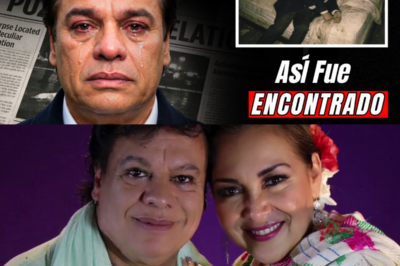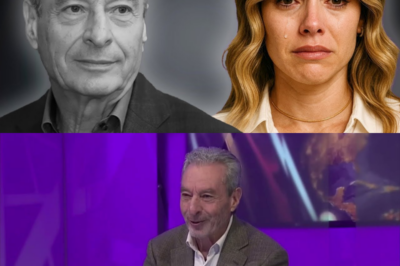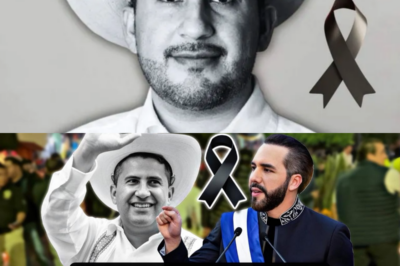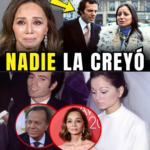The assassination of conservative activist Charlie Kirk has shaken America to its core. A rising star on the right, founder of Turning Point USA, and father of two, Kirk was shot dead while speaking at Utah Valley University on September 10, 2025. Authorities quickly arrested Tyler Robinson, 22, describing him as a politically radicalized lone gunman.
But as the days pass, doubt is spreading. Candace Owens, a longtime ally of Kirk and a prominent conservative commentator, is among the most outspoken skeptics.
“We are being lied to,” Owens declared in a livestream viewed by millions. “There are powerful people behind Charlie’s killing. It wasn’t just some random shooter. There is more to this story, and the American people deserve to know.”
Her words echo a growing chorus of voices questioning whether the official narrative tells the whole truth.
Erika Kirk’s Haunting Words: “The Evildoers”

Owens’ suspicions gained traction after a particularly emotional speech from Kirk’s widow, Erika Kirk. Speaking to the nation in a televised address, Erika described her husband’s assassination as the work of “the evildoers.”
“The evildoers responsible for my husband’s assassination have no idea what they have done,” she said through tears. “You have no idea the fire you have ignited within his wife. The cries of this widow will echo around the world like a battle cry.”
Observers quickly noted Erika’s choice of words — plural, not singular. “The evildoers,” not “the evildoer.” To Owens, that was telling.
“When Erika said that, I knew it,” Owens argued. “She feels it in her bones. This wasn’t just one man. There are forces behind what happened, and she knows it.”
A Nation Searching for Answers
The official account, as laid out by Utah law enforcement and the FBI, is simple: Robinson, a 22-year-old student, steeped in leftist ideology, acted alone. They say he meticulously planned the attack, leaving behind incriminating texts and stashing his weapon in a wooded area near campus.
Yet cracks are already appearing in that account.
Robinson’s roommate turned over messages to investigators — but has also been described as his “transgender partner,” sparking rumors of ideological motives that may have gone beyond politics.
Questions linger about security failures at Utah Valley University. Why was Kirk not given stronger protection at an event drawing thousands, particularly in an era when threats against political figures are rising?
And then there are the eerie coincidences — the suspect’s clothing resembling tactical gear seen in FBI photos, the similarity to others spotted at vigils, and alleged links to larger online networks of radical activists.
For Owens, these inconsistencies form part of a larger pattern: when the public is told the story is simple, it rarely is.
Candace Owens: From Ally to Agitator
Candace Owens is no stranger to controversy, but her voice carries weight in conservative circles. For years, she and Kirk were seen side by side at conferences and rallies, both articulating a combative vision of America rooted in faith, family, and patriotism.
Her immediate reaction to Kirk’s death was grief. But within days, grief turned to suspicion.
“Do you really think they would let Charlie live forever?” she asked her followers. “He was young, influential, unafraid, and he had the ear of millions of students. That makes him dangerous to people in power. They don’t want someone like Charlie around. And now he’s gone.”
Owens points to parallels with other assassinations in American history, from John F. Kennedy to Martin Luther King Jr., where initial government narratives were later challenged, dissected, and doubted.
“History teaches us that lone gunman stories are convenient,” she said. “They shut the case quickly. But the truth is usually much messier.”
Erika’s Grief, and a Widow’s Warning
In her speeches since Kirk’s death, Erika Kirk has walked a careful line — expressing gratitude for law enforcement while also issuing pointed words about those responsible.
“Charlie laid down his life for me, for our nation, for our children,” she told mourners. “May he be received into the merciful arms of Jesus. Now and for all eternity, he will stand at his Savior’s side wearing the glorious crown of a martyr.”
Yet it was her reference to “evildoers” that continues to resonate. To some, it was a rhetorical flourish. To others, it was a signal — a widow who sensed more than the official story revealed.
Candace Owens is firmly in the latter camp. “Erika’s not just grieving. She’s warning us. She knows this was bigger than one angry kid with a gun.”
A Divided Public
Owens is not alone. Online forums, talk radio, and political podcasts are buzzing with theories. Tens of thousands of social media posts under hashtags like #JusticeForCharlie and #MoreToTheStory reflect a widespread belief that Kirk’s assassination has hidden dimensions.
Polls conducted by conservative outlets suggest that as many as 60% of Republican voters doubt Robinson acted alone. Among independents, skepticism is lower but rising.
For many, the suspicion is rooted not just in the details of Kirk’s case but in a broader loss of trust. After years of battles over election integrity, pandemic messaging, and government surveillance, a large segment of Americans view official explanations with deep skepticism.
The Official Line
Still, law enforcement insists the case is straightforward. Utah Governor Spencer Cox has said Robinson was “deeply indoctrinated with leftist ideology” and acted on his own. The FBI has described Robinson’s roommate as “fully cooperative” and not implicated.
To authorities, the plural phrasing used by Erika Kirk or the doubts raised by Owens are understandable in moments of grief and outrage but do not alter the facts.
“Sometimes tragedy invites conspiracy,” one federal investigator told reporters. “But the evidence we have points squarely to Robinson.”
Why People Believe There’s More
Experts in political psychology say the reaction is predictable. “High-profile assassinations always generate alternative theories,” explains Dr. Michael Draper, a professor of political communication. “The death of a charismatic figure like Kirk, especially at such a young age, feels too consequential to be the act of one individual. People seek bigger causes — because a bigger cause feels like it matches the magnitude of the loss.”
But Draper also acknowledges that distrust in institutions amplifies these beliefs today. “When trust is low, official accounts don’t calm suspicion — they fuel it.”
Owens’ Call for Accountability
Owens has gone further than expressing doubt; she is demanding action. She has called for:
A full independent investigation
- into Robinson’s connections and possible backers.
Congressional hearings on political violence and security failures at universities.
Transparency from the FBI, including release of all communications and digital records tied to Robinson and his associates.
“This is not about paranoia,” she insists. “This is about justice. If Charlie was silenced by more than one man, then America has the right to know who wanted him gone.”
The Broader Impact
The suspicions swirling around Kirk’s death are not just about one tragedy. They speak to a nation on edge, where every event is refracted through partisan lenses, and where truth itself feels contested terrain.
For conservatives, Kirk’s death is already becoming a rallying cry — a martyrdom narrative fueling recruitment, activism, and defiance. For critics, Owens’ claims risk inflaming tensions further, turning grief into suspicion and suspicion into unrest.
Either way, the assassination has already reshaped the landscape of American politics.
A Widow’s Vow, A Movement Renewed
Through it all, Erika Kirk’s voice remains steady. She has vowed to continue her husband’s mission, to expand Turning Point USA’s presence on campuses, and to raise their children with the values Charlie championed.
“Charlie loved life. He loved America. And he loved me and our children,” she said. “With all his heart. He made sure I knew that every day. And now it is my honor to make sure his legacy lives on.”
For Candace Owens, that vow underscores why questions must be asked. “If they think killing Charlie will kill his movement, they’re wrong. His voice is still here — in Erika, in Turning Point, and in millions of us who won’t let this be swept under the rug.”
Conclusion: Truth, Power, and Memory
The debate over Charlie Kirk’s assassination is far from over. The courts will hear Robinson’s case. Investigators will release reports. But in the hearts of many Americans, suspicion lingers — that something larger, darker, more coordinated lies behind his death.
Candace Owens has given that suspicion a microphone. Erika Kirk’s words have given it poetry. And the public, grieving and divided, must decide what to believe.
Was it a lone shooter? Or was it, as Owens suggests, the hand of “powerful people” who saw Kirk as too great a threat?
What is certain is this: Charlie Kirk’s death is not just a tragedy. It is now a symbol — of distrust, of division, and of the ongoing battle over truth in America.
News
De la Orfandad al Trono de México: La Vida Inmortal de Juan Gabriel, el Divo que Sanó sus Heridas con Música
La mañana del 28 de agosto de 2016, el mundo se detuvo. En un departamento en Santa Mónica, California, el…
Isabel Preysler y Julio Iglesias: el silencio que esconde la verdad más dolorosa
Más allá del glamour y la fama: el silencio persistente entre Isabel Preysler y Julio Iglesias revela una historia emocional…
Hace 8 minutos: Triste noticia sobre César Costa, su hija llora y confirma la triste noticia.
A sus 84 años, César Costa, el elegante icono de la época dorada de la música mexicana, conmocionó al público…
“Estoy embarazada”: Ana Patricia Gámez finalmente revela quién es el padre de su futuro hijo.
A sus años, Ana Patricia Gámes, considerada en su momento un símbolo de elegancia y felicidad en los medios latinos,…
La Profecía de Bukele en México: El Trágico Sacrificio de Carlos Manzo y el Costo de Desafiar al Crimen
En el complejo ajedrez de la política latinoamericana, donde las líneas entre el orden y el caos a menudo se…
ROCÍO SÁNCHEZ AZUARA CONFIRMA EL ATENTADO y SEÑALA a la FAMILIA AGUILAR
Rocío Sánchez Azuara acaba de confirmar oficialmente que lo que le pasó fue un atentado planificado y en una declaración…
End of content
No more pages to load












